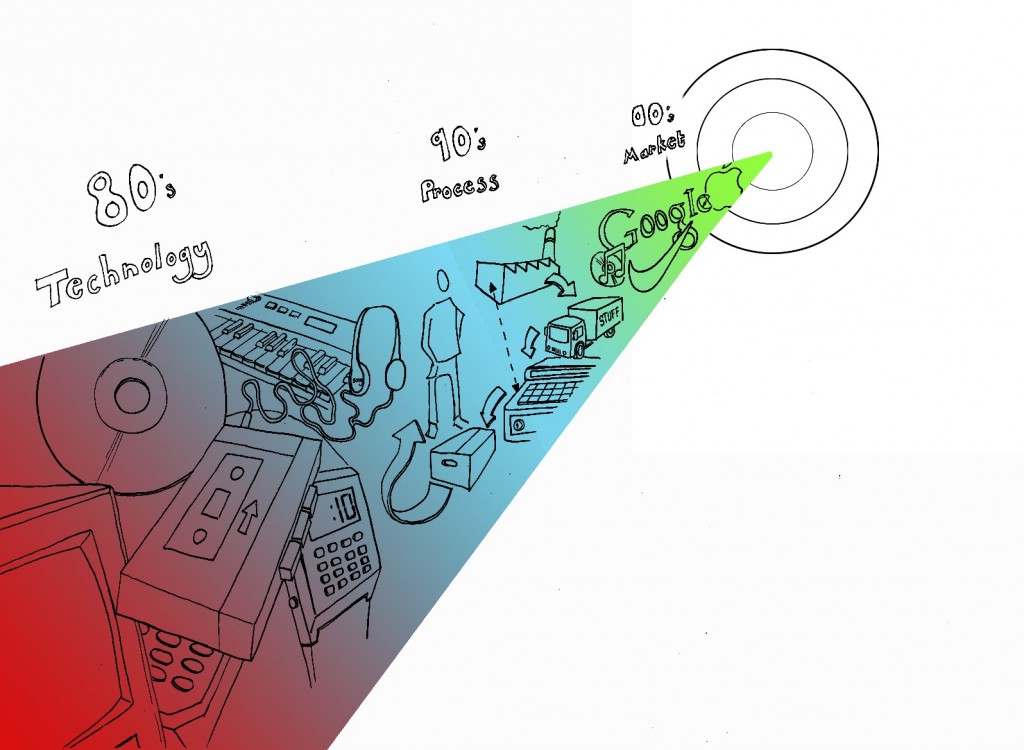 This is the first of two posts that discuss the experience economy under the terms experience-centric organisation. In the second one, I will write a bit about what the experience centric organisation means, but in this one, I want to introduce the term and where it came from (at least, in my mind).
This is the first of two posts that discuss the experience economy under the terms experience-centric organisation. In the second one, I will write a bit about what the experience centric organisation means, but in this one, I want to introduce the term and where it came from (at least, in my mind).
During the past few months I have been reflecting over the interests that companies have for Service Design, and particularly what it is they value from their use of designers. This is based on work I have been doing together with Telenor (a global telco, based in Norway), Gjensidige (a Nordic insurance company), Accenture (innovation delivered) and Norsk Tipping (the Norwegian lottery organisation). In addition, this is coloured by various discussions with other companies, researchers and colleagues.
My conclusion, is that we are well into the experience economy, as described by Pine and Gilmore in their book at the turn of the century. I’m not sure why companies have been so slow to react to this, maybe there is just a lag its identification until companies have it on their radar as a mainstream imperative. But it seems that many companies are now working (struggling), big time, to improve customer experiences. As anyone knows, who has tried this, this does not mean using the word experience on an advertising poster and leaving it there (although advertising seems to increasingly add the word experience to everything these days – a holiday experience, a taste experience, a driving experience etc).
If the 80’s was about technology (the birth of the pc, Moores law, etc), the 90’s about business processes (incl logistics) Â and the 00’s about marketing and brand (the nike swoosh), then I believe the the next decade will be about experiences. It will be about experience-centric organisations becoming dominant, differentiating themselves from their competitors in a very obvious way. Old news you might say, and I agree with you. However, this time its not designers talking about it, or the odd marketing expert. It seems that organisations themselves are coming to this conclusion, and that is what will make it happen. And it will happen at an accelerating pace. We will see a decade in which design for experiences becomes central. The same will happen to services as has happened to products. Design will be a differentiating factor, and those that choose to use it best (and first) will gain most. In the product world, we now expect products to be ‘designed’ and we look for this. The same was not true in the 80’s. Design exploded and became a product imperative in the past 15 years. Services will go through the same transition. Services will follow suit, but in a service -based way.
Look out for the experience-centric organisation, because they are already on their way. Is your company one of them, or is it about to receive a shock?